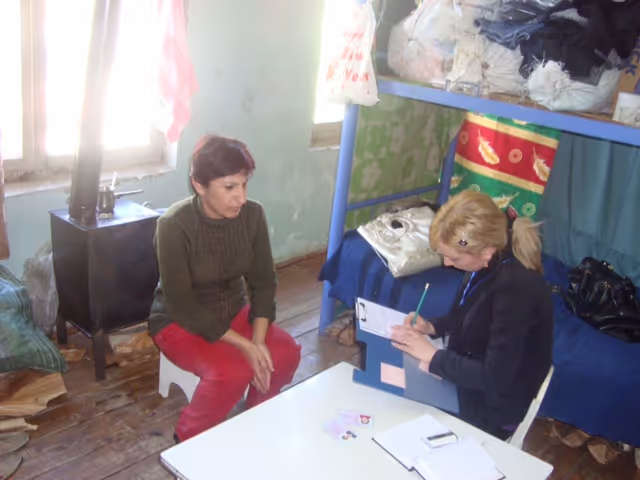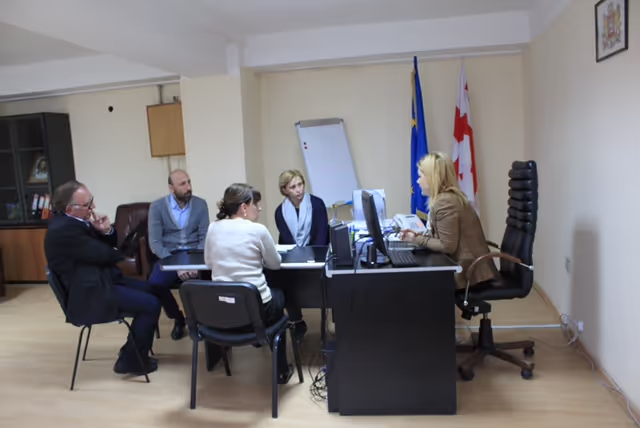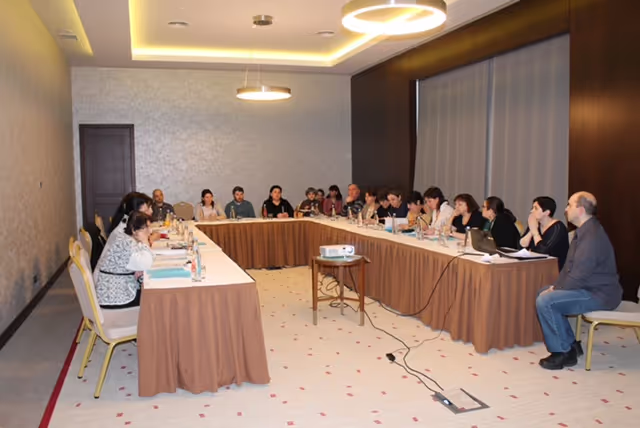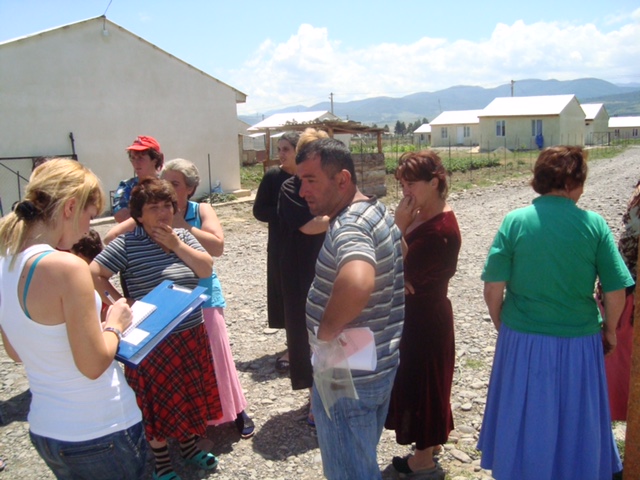Impact of Targeted Health Insurance on Health Service Utilization, Expenditures and Health Status among IDP Populations in Georgia
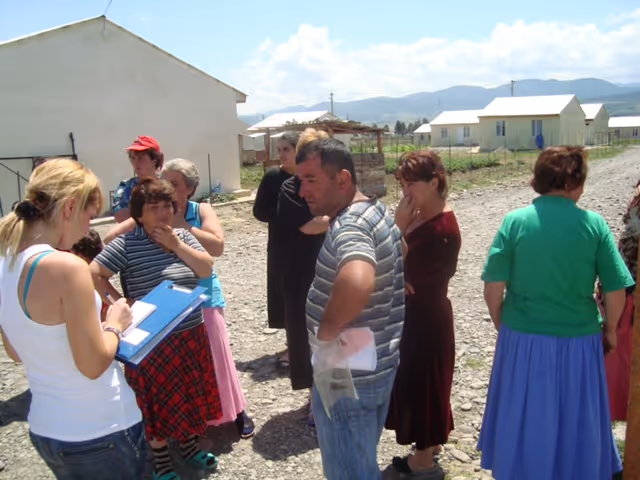
Project overview
The research was intended to evaluate the impact of targeted health insurance on the health of individuals displaced within Georgia by conflicts with Russia during/prior to 2008.
Countries
Georgia
Organisations
Health Research Union
Partners
Abkhazeti, National Centre of Disease Control and Public Health (NCDCPH)
Area of funding
Humanitarian Research
Grant amount
£138,590
Start date
01
January
2015
End date
01
September
2017
Project length (in months)
32
Funding calls
Focus areas
No items found.
Topics
Health systems and services
Status
Closed
Project solution
This project offers [specific solution or intervention] to tackle [challenge]. By implementing [strategies, tools, or innovations], the project aims to achieve [desired outcomes]. The approach is designed to [specific actions or methods] to bring about meaningful change in [community, region, or issue area].
Expected outcomes
This project aims to achieve [specific outcomes], such as [measurable results, improvements, or changes]. The expected impact includes [benefits to the target community, advancements in research or innovation, or long-term effects]. By the end of the project, we anticipate [specific changes or milestones] that will contribute to [broader goals or objectives].
Principal Investigator: Maia Butsashvili, Health Research Union
Purpose
The research was intended to evaluate the impact of targeted health insurance on the health of individuals displaced within Georgia by conflicts with Russia during/prior to 2008. The research aimed to measure outcomes on healthcare utilization (frequency and access), expenditures and self-reported health status (including birth outcomes) amongst IDPs. The study intended to conduct a Health Utilization and Expenditures Survey (HUES) to measure differential outcomes for IDP households covered by the targeted health insurance program, and analyse factors, such as urbanization, compact settlement or integration and their impact on health utilization and expenditures. The study also sought to enable comparison with health outcomes and expenditure amongst the general population in Georgia.
Programmes and Outcomes Achieved
A Health Utilization and Expenditures Survey was successfully undertaken amongst IDPs in Georgia. A total of 1,319 questionnaires were completed, enabling the research team to collect and analyse data from over 4,300 household members relating to self-reported health expenditures, healthcare utilization and health status of IDP populations. The survey was carried out among IDP currently living in Georgia mainly residing in compact settlements - specifically built accommodations or administrative buildings allocated by the Municipal Government.
The ability to make comparisons with non-IDP populations was more limited than anticipated at the study outset, due to changing restrictions on the availability of HUES results from the general population. Changes to the health insurance schemes during the study period meant packages overlapped, and comparison between participants of targeted and non-targeted schemes did not demonstrate any significant differences.
Key findings:
- State supported universal health care and targeted healthcare benefit packages for specific population groups have improved access to health services and reduced financial burden on patients. However, it has not provided full protection to households against health care costs, and out of pocket payments varied considerably.
- Awareness of universal healthcare and targeted health benefit packages amongst IDPs is suboptimal.
- A majority of IDPs think that the quality of healthcare services has improved over the last three years.
- Self-treatment continues to be more commonly practiced by IDPs than by the general population.
Key outputs:
- Policy brief (produced in Georgian for national Government and other stakeholders)
- Research report
- Peer reviewed article published in Georgian Medical News (in English, Georgian and Russian)
- Two further peer-reviewed articles expected to be published.
Next steps:
HRU plans to work with Government and NGO partner Abkhazeti to increase the level of awareness among IDP populations about the services they are entitled to. The HUES survey findings will act as a baseline to determine future trends of health expenditures, healthcare utilization and health status amongst IDP and non-IDP populations, enabling assessment of the fast-changing healthcare policies and operational models among IDPs.
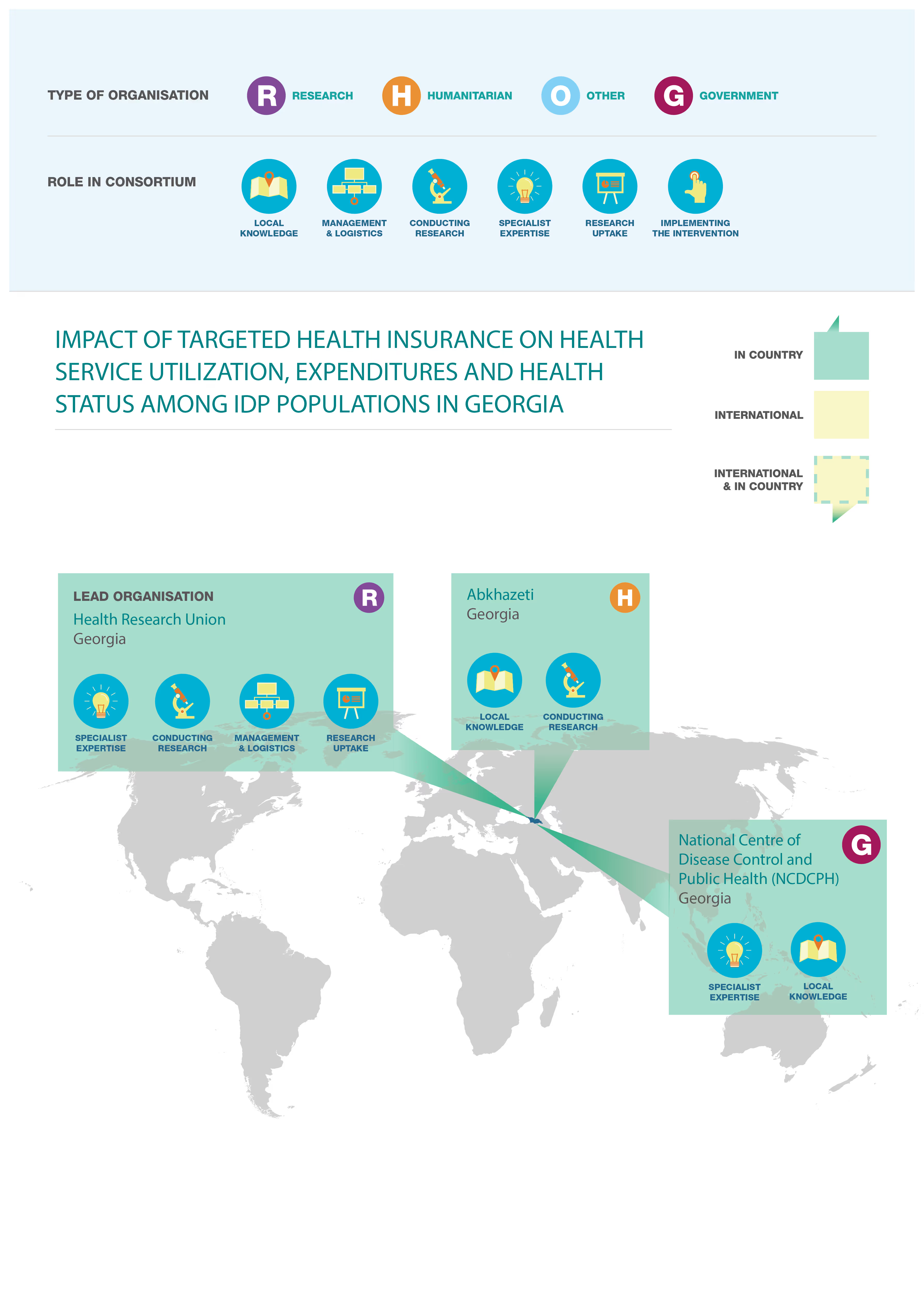
No items found.
Project delivery & updates
Stay up to date with the latest developments from this project. Here, you will find details on what has been delivered, resources created, and regular updates as the project progresses. Access key documents, reports, and other materials to see how the project is making an impact.
No resources/updates have been published yet for this project. Sign up for our newsletter to stay informed about upcoming publications and updates!
Join our Newsletter
Resources
Self-Perceived Health Status and Illness among Internally Displace People in Georgia.
Journal article
LEARN MORE
